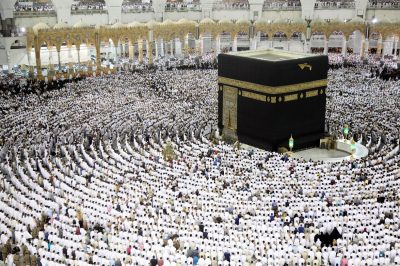With Ramadan due to begin in just over a week, Muslim doctors, nurses and healthcare workers are at the forefront of fighting COVID-19.
Therefore, a fatwa by some prominent Muslim scholars has been released, saying that doctors and those working in the healthcare field could be exempted from fasting if fasting could potentially endanger treatment of coronavirus patients.
The fatwa was signed by Deobandi scholars in Blackburn, Batley, Bury, Bradford, Leeds, London, Birmingham, Sheffield, and Leicester, 5PillarUK reported.
? Read Also: Muslims Can Fast Ramadan Despite COVID-19: Al-Azhar Committee
“If it is possible for you to fast without risking the lives of patients, for example, if annual leave can be taken and the hospital has adequate staffing, this should be considered, if not for the whole month, then for as many days possible…,” the fatwa stated.
“Another option to consider is smaller shifts or night shifts where feasible. For the UK, the latter may not address the issue because the nights are short. Nevertheless, all alternative options should be considered.
“If, however, it is not possible for you to fast due to the strong likelihood of dehydration and severe thirst along with the risk of making clinical errors which could potentially affect lives, the fasts can be postponed to a later date. This is a judgment you need to make on a personal level based on your own health whilst keeping in mind your duty of care to patients.
“Any decision you make should be reviewed on a daily basis. If you are uncertain about your ability to fast or it becomes possible for you to fast on a particular day, for example, if the shift is not expected to be busy or a shorter shift becomes possible, then the fast should be attempted. If at any point, you struggle to continue the fast, the fast can be broken and repeated at a later date without any additional penalty.
“Likewise, if your rota includes rest days or zero days or lieu days when you are not expected to be at the hospital, it will be necessary to fast on those days.”
Different Ramadan
Dr. Jasser Auda, a professor and Al-Shatibi Chair of Maqasid Studies at the International Peace College South Africa, the Executive Director of the Maqasid Institute, and a Visiting Professor of Islamic Law at Carleton University in Canada, has a similar opinion.
In a fatwa sent to AboutIslam, he wrote, “if the Muslim medical personnel can function without harming him/herself or falling short in their duty to save lives, then they should indeed fast.”
“Otherwise, that is if he/she assessed that there will be harm to him/her or their patients in any way, then they could break their fasting and make up for the days later during the year. Allah does not ask of a believer what puts them in hardship.”
It has been established in Islamic law that one of the conditions obligating fasting is the legal and physical ability to endure it. The legal ability refers to the absence of any legal impediments that prevent fasting and these include menstruation and post-natal bleeding.
The physical ability is the physical energy of a person. This means that a person must not suffer from an illness that causes extreme hardships during his fast, nor old age that makes a person tantamount to an ill person who cannot fast, or a traveler since traveling is presumably a difficult undertaking.
Ramadan is the holiest month in the Islamic calendar.
In Ramadan, adult Muslims, save the sick and those traveling, abstain from food, drink, smoking and sex between dawn and sunset.
Muslims dedicate their time during the holy month to be closer to Allah through prayers, self-restraint, and good deeds.
It is customary for Muslims to spend part of the days during Ramadan studying the Noble Qur’an.
Many mosques and Islamic centers are going online to connect to worshippers as mosques will remain closed during the holy month.
